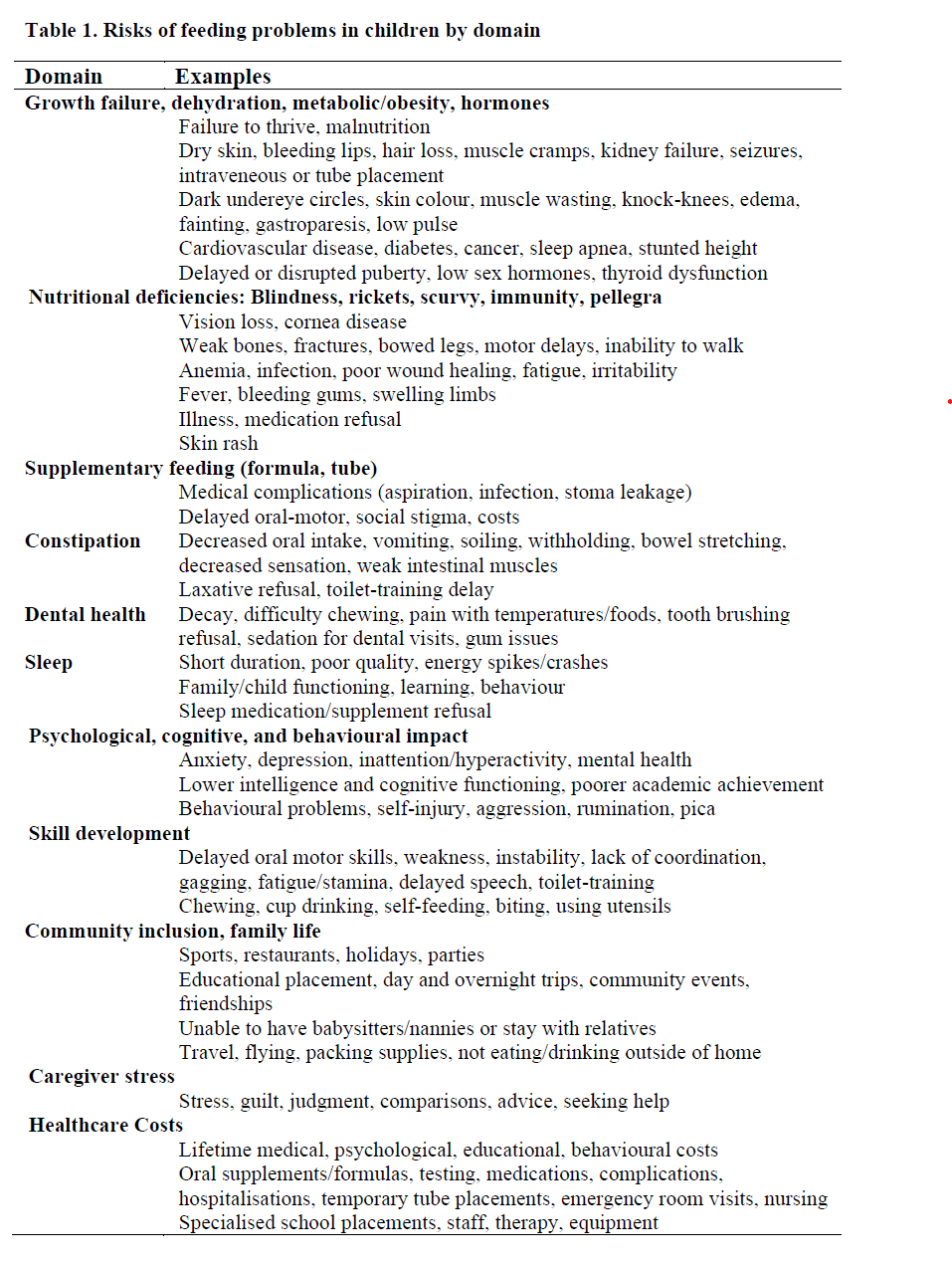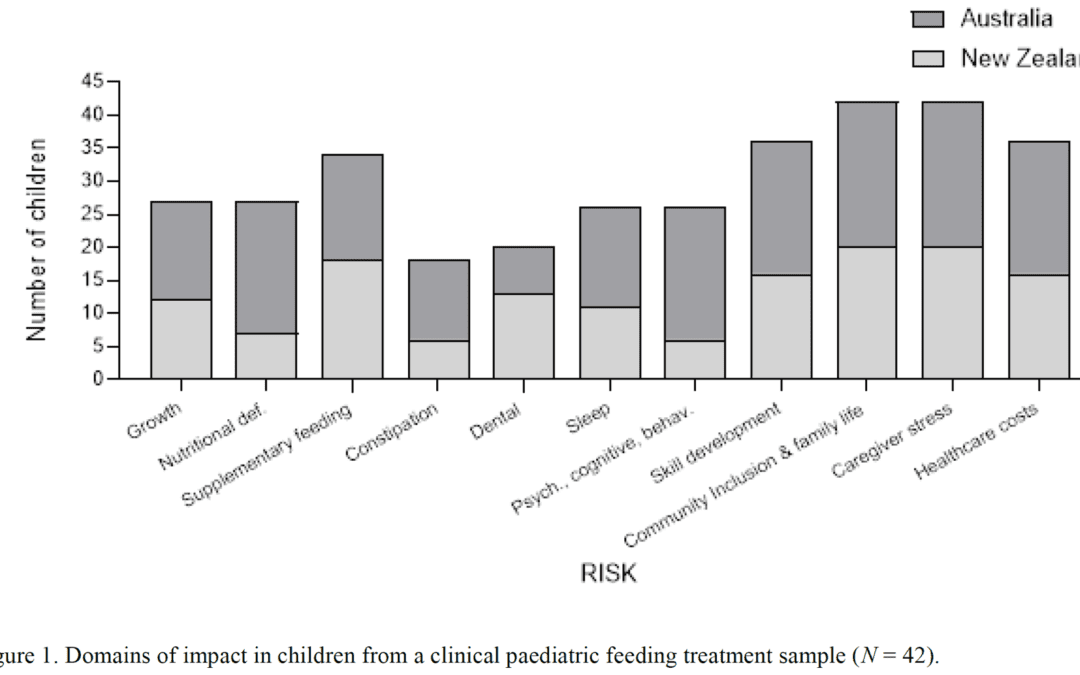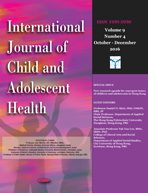by Drs. Tessa Taylor & Sarah Taylor
Abstract
Childhood feeding problems are one of the most common complaints raised in physician visits. Previous literature has suggested that these problems can be temporary, normal, and not a cause for concern. Thus, it is not surprising that parents may be advised to “wait and see” or receive generic, non-evidence-based recommendations.
Objective: This narrative review aims to provide a comprehensive summary of the risks of prolonged feeding problems and a guide for physicians to determine when treatment referral is necessary.
Method: We conducted a retrospective chart review of our clinical intake records to identify the consequences associated with varied paediatric feeding problems. We describe these consequences in terms of our clinical observations, aligned with current research literature and recent media articles.
Results: Based on our records and current research literature, it is apparent that feeding problems can negatively affect multiple areas of a child’s life, including growth, family life, and skill development. Specific issues include poor sleep quality, toileting problems, and the increased likelihood of medical conditions or illness. Feeding problems are also associated with greater levels of caregiver stress, and high healthcare costs.
Conclusion: Due to the multifaceted impact on critical child development, referral for feeding assessment should be made as early as 6-months of age, and referral to empirically supported treatments should be prioritized and accessed by 1-year of age. We provide recommendations for health providers to assist in determining a process of evaluation and referral to treatment.




